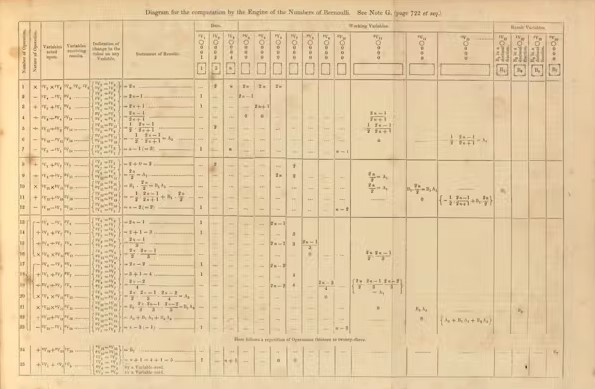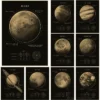This woman wrote the 1st code a century before 1st computer!
People often refer to Ada Lovelace as the world’s first computer programmer. Her gender and her famous father, the poet Lord Byron, have overshadowed her contributions to science and technology. Born in London in 1815, Ada was a brilliant mathematician who possessed a unique talent for combining analytical thinking with imagination. She wrote the first code a whole century before the first computer.
Analytical Engine
At the age of 17, she was introduced to Charles Babbage. He was a pioneer in the field of computing. Lovelace became fascinated with his proposed Analytical Engine, a mechanical device that could perform complex calculations.
Lovelace’s work on the Analytical Engine included translating an article on the machine by Italian mathematician Luigi Menabrea. She also added her own extensive notes and analysis. Lovelace’s notes, published in 1843, contained what people now recognize as the world’s first computer program. It’s a sequence of instructions for calculating the seventh Bernoulli number.

An Appendix page from Ada Lovelace depicting calculation of the so-called ‘Bernoulli numbers’
Note G © Magdalen College Libraries and Archives, Daubeny 90.A.11
Ahead of Her Time
But Lovelace’s contributions went beyond mere programming. She envisioned a future in which machines like the Analytical Engine could create art, music, and even help solve social problems. Walter Isaacson wrote in his book “The Innovators” – “This insight would become the core concept of the digital age.”
Lost and Found
Despite her groundbreaking work, computer scientists largely forgot Lovelace’s contributions to computing for over a century. They only rediscovered her notes in the 1950s. They recognized her as a visionary who had anticipated the development of modern computing by over a century. Today, Lovelace is celebrated as a pioneering figure in the field of computer science. Her work continues to inspire new generations of scientists and technologists. The Department of Defense named a programming language ‘Ada’ after her and declared October 11 as Ada Lovelace Day to celebrate women in STEM.
However, Lovelace’s legacy has also been complicated by her privileged upbringing and her struggles with illness and addiction. As a woman in Victorian society, she faced numerous obstacles and prejudices. Her work was often dismissed as the product of a woman’s overactive imagination.
An Inspiration to All
Nevertheless, her groundbreaking contributions to the field of computing stand as a testament to her brilliance and perseverance, and serve as an inspiration to women and girls around the world who are pursuing careers in science, technology, engineering, and mathematics.
In recent years, there has been a renewed interest in Lovelace’s life and work, with books, documentaries, and even an opera dedicated to her memory. As we continue to celebrate her contributions to the field of computing, it is important to remember the obstacles she faced and the legacy she left behind. Ada Lovelace was a true visionary whose insights into the potential of machines to transform our world continue to shape the way we think about computing and technology today.


 Additional Fun Facts
Additional Fun Facts

